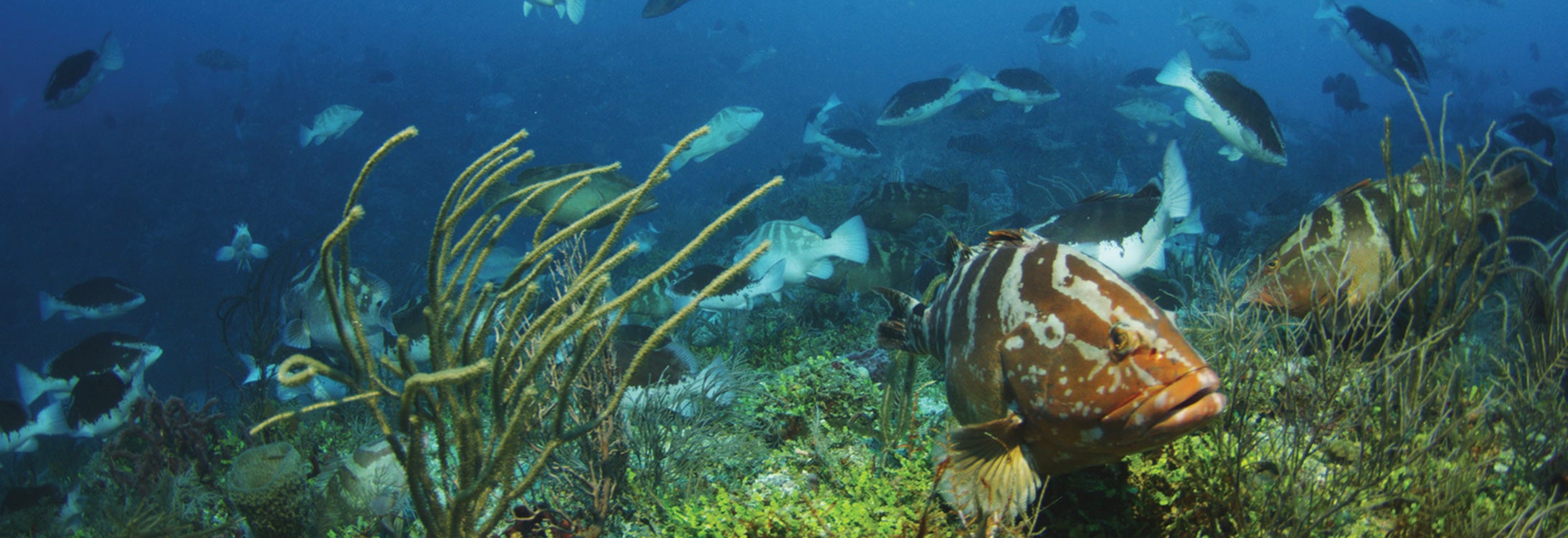Study shows climate change may hinder fish conservation efforts
For more than 20 years, conservationists in the Caribbean have been working to protect the endangered Nassau grouper. Thanks to those efforts, populations of this critical reef fish have stabilized in some areas.

Rebecca Asch is one of 126 recipients of the prestigious 2018 Sloan Research Fellowships for her work on climate change and how it affects fish populations.
However, in a new paper by researchers from ECU and the University of Texas at Austin, marine scientists show climate change may severely hinder these conservation efforts by the end of this century. By 2100, breeding habitats are projected to decline by 82 percent from 2000 levels if nothing is done to mitigate climate change, according to the report published in the July issue of the journal Diversity and Distributions. These spawning habitats are critical to the survival of the species.
Additionally, suitable habitats for non-spawning fish are expected to decline by 46 percent.
“To truly understand how climate will impact fishes, we need to know how it will impact the most vulnerable life history stage – spawning. If this link in the life cycle is jeopardized, the species as a whole will be in jeopardy,” said Rebecca G. Asch, an assistant professor of fisheries biology at ECU.
The Nassau grouper is one of the most recognizable reef fish in the Caribbean and, as a top predator, the fish contributes to the ecosystem and can act as a warning system for overall reef health.
Nassau groupers depend on the success of their spawning aggregations, where hundreds to thousands of fish gather in one area for a few days to mate. These mass spawning events make them easy targets for fishers, and they were overfished to the point the species became endangered.
Beginning in the 1990s, several countries, including the United States, put outright bans on fishing Nassau grouper. Other countries, such as Cuba and the Dominican Republic, restrict fishing during their winter spawning season. Other areas have restricted fishing in specific breeding grounds.
The paper points out the narrow temperature range Nassau groupers can tolerate while spawning may create a bottleneck that will impact population recovery.
Large breeding events, called spawning aggregations, are important for the health of the ecosystem. Large predators, such as sharks, feed on the gathered grouper. Whale sharks and manta rays feed on the eggs that are released.
There is some good news, the scientists said. Mitigating climate change could slow the decline in breeding habitat by only 30 percent.
The scientists plan to expand their research to look at how climate change may affect spawning in 12 species of grouper and snapper in the Caribbean and the Pacific. Their model could aid researchers in studying climate change impacts on other fish species that depend on large spawning events.
The Nippon Foundation-Nereus Program and the National Academy of Sciences Gulf Research Program Early Career Fellowship funded the research.
